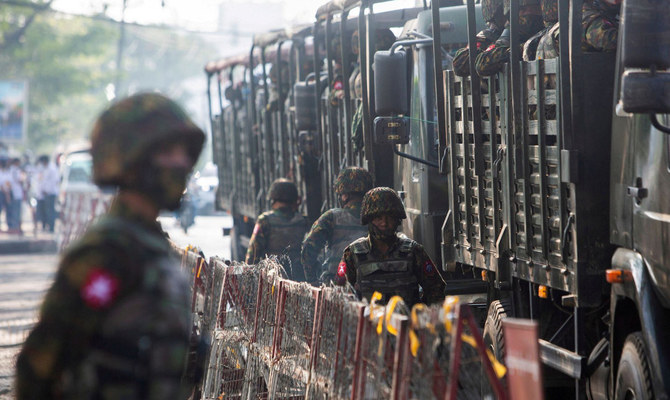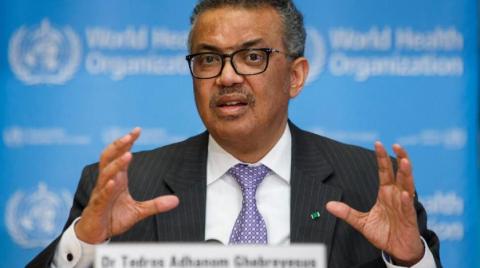
The Myanmar military, known as the Tatmadaw, finds itself increasingly beleaguered as it faces mounting challenges from rebel groups and internal dissent. Once considered an unassailable force, the Tatmadaw’s grip on power is weakening as it confronts a multifaceted rebellion fueled by decades of grievances and aspirations of autonomy.
One of the most significant developments contributing to the Tatmadaw’s predicament is the growing cohesion and resilience of rebel groups across Myanmar. Ethnic minorities, including the Karen, Kachin, Shan and Rakhine, have long been marginalized and oppressed by the central government, leading to the emergence of armed resistance movements that seek greater autonomy and rights for their communities.
In recent years, these rebel groups have forged alliances and coordinated efforts to challenge the Tatmadaw’s authority, mounting coordinated offensives and launching guerrilla attacks against military targets. The resilience of these rebel groups has been demonstrated by their ability to adapt to changing circumstances, exploit vulnerabilities in the Tatmadaw’s defenses and sustain prolonged campaigns despite overwhelming odds.
As the Tatmadaw struggles to contain the burgeoning rebellion and navigate increasing international pressure, it finds itself trapped in a precarious position with few viable exit strategies. The military’s capacity to project power and enforce its authority is being eroded by a resilient and determined opposition, both on the battlefield and in the streets.
In this rapidly evolving landscape, the Tatmadaw’s future hangs in the balance. While it may still possess the firepower to quell dissent in the short term, the long-term sustainability of its rule is increasingly in question. The resilience of rebel groups, the tenacity of the civilian resistance and the condemnations of the international community have created a perfect storm of challenges that the Tatmadaw may ultimately prove unable to weather.
Last week’s announcement of fresh US sanctions on Myanmar thus marked a pivotal moment in the global response to the unfolding crisis in the Southeast Asian nation. The targets of these sanctions are clear: they are aimed squarely at the leaders of the 2021 military coup and those complicit in the gross human rights violations that have ensued.
The timing is significant and reflects a strategic calculation on the part of the US government. With each passing day, the situation in Myanmar grows increasingly dire. By announcing sanctions at this juncture, Washington is seizing the opportunity to demonstrate leadership on the world stage and galvanize support for a coordinated international response — particularly from the Association of Southeast Asian Nations. Moreover, by acting swiftly and decisively, the US is sending a clear signal to other nations that complacency in the face of tyranny is not an option.
The US is sending a clear signal to other nations that complacency in the face of tyranny is not an option.
Dr. Azeem Ibrahim
Though the effectiveness of these sanctions is difficult to predict, their potential impact cannot be understated. In the short term, we can expect the targeted individuals and entities to experience significant financial and diplomatic repercussions, as their access to global markets and resources is curtailed. This will likely hamper the junta’s ability to sustain its grip on power and finance its campaign of repression, thereby weakening its position over time.
By isolating the leaders of the military coup on the world stage, the sanctions may pave the way for diplomatic efforts to resolve the crisis through dialogue and negotiation. The international community must leverage this moment to intensify pressure on the junta to engage in meaningful dialogue with the legitimate representatives of the Burmese people and to facilitate a peaceful transition to civilian rule.
However, sanctions alone are not a panacea for the complex challenges facing Myanmar. While they represent a crucial first step toward accountability and justice, they must be accompanied by a comprehensive strategy that addresses the underlying political, economic and social drivers of conflict in the country. This includes direct support for grassroots movements, civil society organizations and political actors working toward inclusive governance and reconciliation, which seems much more likely now that the junta is on the back foot.
The success of sanctions ultimately depends on the willingness of the international community, and in particular the ASEAN nations, to uphold and enforce them rigorously. All too often, sanctions regimes are undermined by loopholes, enforcement gaps and a lack of coordination among key stakeholders. It is imperative that the US and its allies remain vigilant in monitoring compliance with the sanctions and take swift action against any attempts to circumvent them.
In addition to targeted sanctions, the US and its partners must explore other diplomatic, economic and legal avenues to hold the perpetrators of violence in Myanmar accountable for their actions. This may include supporting efforts to document human rights violations, pursuing legal mechanisms for accountability and justice, and aiding victims and survivors of violence.
At its core, the imposition of sanctions on Myanmar represents a moral imperative and a commitment to upholding universal principles of democracy, human rights and the rule of law. It is a reaffirmation of America’s values and a testament to the enduring resilience of the Burmese people in their quest for freedom and dignity. As we stand in solidarity with the people of Myanmar in their darkest hour, let us be guided by the belief that justice will prevail and that the light of democracy will ultimately triumph over the forces of oppression and tyranny.
• Dr. Azeem Ibrahim is the director of special initiatives at the Newlines Institute for Strategy and Policy in Washington, DC.
X: @AzeemIbrahim












